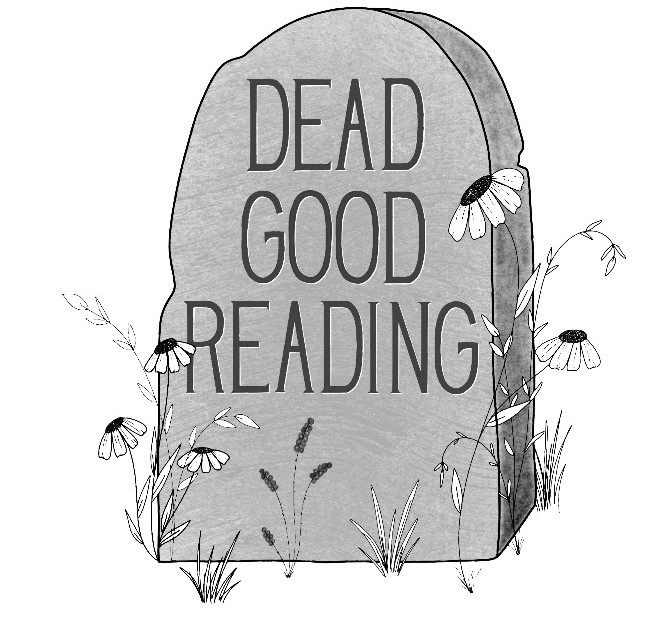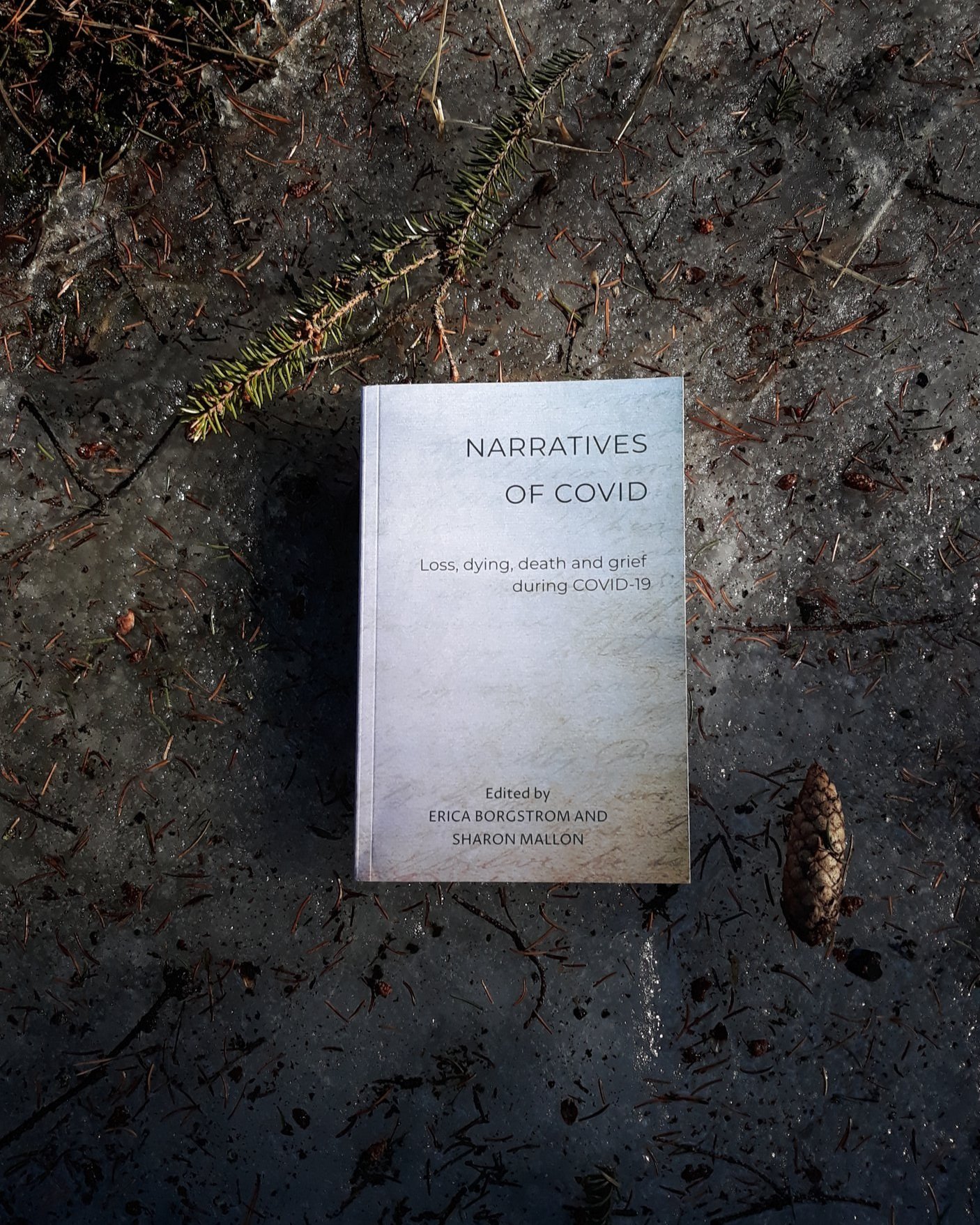This month I am taking part in Memoir March. Memoirs are an interesting genre of books. Memoirs are based on people’s life stories but memories are not fixed entities, instead feelings towards, and interpretations of, memories might change over time. Furthermore, whilst memoirs are based on ‘true events’, sometimes the truth needs to bend to fit the narrative. Memoirs around grief, dying and loss appear to be sprouting everywhere and I was spoiled for choice when selecting books to read.
Editors Erica Borgstrom and Sharon Mallon from the Open University (OU) were inspired by The Decameron, a 14th century book of short stories highlighting a variety of experiences written during the Black Death, that reflected on the early weeks and months of that pandemic. They set out to gather thoughts of OU students, staff and alumni regarding their experiences of loss, death and bereavement during the covid-19 pandemic. The result is Narratives of Covid: Loss dying, death and grief during COVID-19.
Thirty essays on different aspects of the pandemic give a rich insight into what some people have experienced during these ‘unprecedented times’. Divided in 6 sections the essays focus on the breadth of lived experience of death, loss, grief and bereavement. Readers can dip in and out the book, and select the chapters that speak most to them.
“This project then, although primarily being about collating narratives, is much more than just some words on a page in a book. It’s about capturing a moment in time, different experiences and voices, generaeting and fostering community, processing emotions, and honouring those who have died”
— Borgstrom and Mallon Page: xxv
Being death scholars, Borgstrom and Mallon will have probably felt that this was their time to shine and share their expertise with the public, whilst simultaneously being reluctant to do so, as they were trying to make sense of this ‘new normal’ and all the death and dying themselves. The format they chose for this edited collection is excellent, and I am glad this collection of essays exists as it will be helpful for the people of the future to understand experiences of the current pandemic as they were happening. Reading accounts that were written in 2021, makes me realise that a lifetime, as well as seemingly no time at all, has passed. This collection of essays is indeed a wonderful time capsule, which shows some of the timeline of developments in the pandemic.
The opening of Sophie Michell’s chapter caused me pause:
“A text from my sister in lockdown: ‘Aren’t you glad that Mum didn’t have to live through this?’”
— Michell Page:163
I have uttered this exact phrase to my own mother, about her mother, my grandmother, who died a few years ago. I was relieved grandma didn’t have to live through lockdown, that my mother and her siblings didn’t have to care for her. That we didn’t have to explain to my grandmother what was happening. I was relieved to read about Michell’s sense of relieve in her narrative. I think this is one of the strengths of the volume: by offering a range of narratives readers will be able to realise that they probably were not alone in whatever they were feeling at the time we were all stuck in our own houses trying to make sense of it all.
Jacky Price’s chapter is a gut-wrenching account on her sister experiencing a brain haemorrhage in February 2020. The pandemic threw a spanner into family visits and the forms of care she would have liked to have given her sister. Suddenly, only one visitor was allowed, and priority given to her sister’s husband. Perspex glass and PPI enter the scene. She reflects on the ongoing uncertainty:
“And now we wait, for vaccine protection and visiting to start and pieces to be picked up. Millions of tiny pieces to try and put back into something we might recognise as our lives, our new normal but all overshadowed by grief and loss and fear of what happens next’”
— Price Page:47
At the time of writing my mother has tested positive for covid and while Price wrote about waiting for a vaccine, my mother has received two vaccines and a booster, making clear that covid is probably here to stay. But I definitely don’t feel as anxious as I probably would have felt if she had contracted it one or two years ago. Price’s account also makes clear that live is not a movie; as no satisfying ending is provided. I hope her and her sister are ok. But she might be one of the many that died during the pandemic.
I was unable to read more than a few essays in a row, and was deeply moved by some of the chapters. I have highlighted but a few chapters of the volume and readers will be able to navigate to the topics they are most interested in reading.
The sense of loss, in the broadest sense of the word, is palpable in many of the pages. Loss of connections, loss of opportunities, loss of everyday life, loss of anticipated futures, loss of touch, loss of movement, loss of people. This edited collection will be of interest to many at present time, and will surely provide a valuable resource in the future.
The e-book of Narratives of Covid is available to read for free. Paper copies are printed on demand.


Leave a Reply